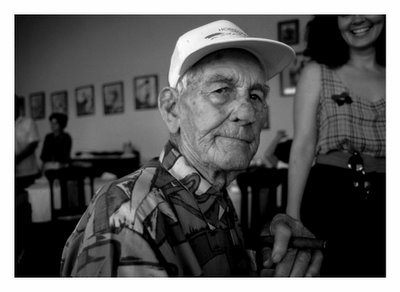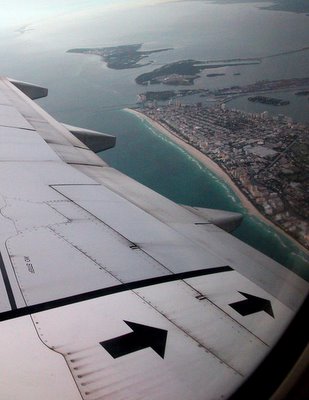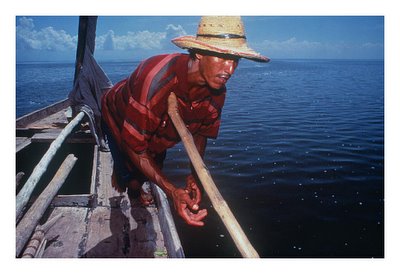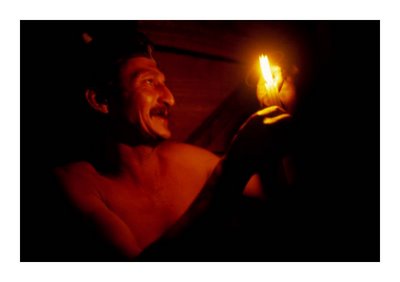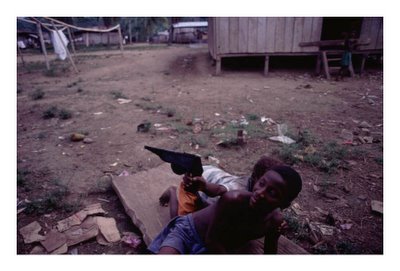
Within hours, possibly days of signing a free trade agreement with the US, the question must be asked, can Colombia compete?. And if it can, in what?. There is no doubt that Colombia is a rich country, with plenty of natural resources logged deep within its mountains and river valleys. There are gold reserves, oil flats and emerald mines. Colombia’s fertile plateaus are ripe with fruits and botanicals. Its jungles are a natural biosphere for medicinal plants and tropical species. It all seems too good to be true. Even Bogotá, with its sprawling metropolis, is surrounded by thousands of flower plantations, where roses and carnations are cultivated, cut and exported to the streets of New York, Miami and Amsterdam. So where does it go wrong?.
First of all, Colombia is the world’s best kept secret, and the government goes a very good job by under-promoting this country. A recent advertising campaign sponsored by the Colombian government employs the slogan’ Colombia es passion’ - Colombia is passion. It’s a little red heart, that looks somewhat like a health insurance logo, or the icon for cardiac arrest.
Colombia maybe passion, but it’s the Passion of the Christ, for thousands of kidnapped nationals and foreigners in the hands of the rebel terrorist groups operating in the country. The only other explanation I can get out of the new Advertising campaign is that Colombia wants to promote the word
passion, as a way of attracting tourism to this country. Colombia is many things to me, adventure, danger, eco tourism ,but 'passion' is not one of them.
Stand on any platform on the London underground or Metro North in wind swept Westchester country, and every country splashes fabulous pictures of its landmarks across giant billboards, with slogans such as ‘Incredible India’. Countries, such as Bhutan, Mali and Madagascar do better marketing than Colombia. Mind you, it doesn’t hurt to have a movie named after your country with dancing lemurs and globe-trotting penguins.
What Colombia needs to compete in the world, is less passion, and more attitude. Take India, for example. A country that ten years ago, was synonymous with leprosy and famine. Today, India is powered by intellect and values. A country that is internet incarnate. A country that is so close to heaven, that it created cyberspace in less than a decade, and whose moto ‘Incredible India’ is a huge understatement.
Today, if you want to do business, you look to India. A country full of young, motivated individuals, running on mobile technology, dancing one step ahead of myspace.com, and who speak in tongues with several Phd’s. India has invested in its greatest resource: it’s people, and not its 'passion'.
Eight percent of all 1-800 calls pass through India. Order a pizza in New Jersey, with double cheese and pepperoni, and some charming guy, named Sam Guptra in Bangalore- India’s Silicon valley- is taking your order with a smile (even though you can’t see it) and text messaging back the order back to your nearest Pizza joint on Grand Avenue. Everything these days to function, goes through India. Rent a car in Miami with a 1-800 number and you are really getting the car from Mumbai. Have a credit card problem?. No problem. India will fix it. Playing with time, is another great strategy of this behemoth of Asia. A country that is thirteen hours ahead of everyone else, is at a great advantage. While you sleep, your local bank has ‘outscourced’ your problem with double billing, to a room full of IT graduates working for Infosys, Unisys, and every other
Sys known to mankind. So when that alarm rings in the morning and you call your bank, everything is in order. “Yes sir, we have credited your balance with us’. Now, you can head to work with your latte
frappe, with a clear mind and a heart felt thank you to Mr Guptra and friends, who are getting ready for bedtime in Madras, after a hearty meal of curry and dahl.
Now, if this were Colombia, you would still me standing in line in the bank, thirteen hours later, waiting to see the bank manager, after having had several shots of black coffee -making you even more incredibly jumpy and nervous at the prospect of imminent bank expulsion, account closure and possible extradition to the US. All of this, because someone went on a shopping spree with your debit card number.
So, Colombia needs less passion and more India. Fewer MBA’s and sacred cows in big business, and more vision towards investing in its human resources. Given all the wealth that lies in this country, the battle is half won. If India could turn itself around in ten years, why can’t Colombia, in the next five?. It’s a question of faith, as any Indian might tell you, and of course, good banking.



